Quality products from fine crushed peanuts are the source of many nutrients and a good addition to a complete diet. Peanut Butter comes from roasted peanuts, ground into a paste with the addition of vegetable oil and sometimes honey.
Home of peanut butter is the U.S. and logically mass production is based there - more than half the peanuts produced in the country go to make that product spreads. Its popularity in English-speaking countries like Canada, Australia, Britain, South Africa, New Guinea, New Zealand, as well as the Philippines, and Netherlands is huge.
Peanut butter is a relatively new food product from the beginning of the last century, about 1903, in the USA.
With oil content at least 50%, peanut oil is not comparable with other types of oil we use - cow, vegetable, hydrogenated etc. In addition to being incredibly delicious and tasty, peanut butter has some advantages over other products spreads in terms of nutritional value. There are several oils that are made from peanuts.
Types of peanut butter
- Natura l - this is refined and made from fresh peanuts, which are pressed by a special type of technology. It is poorly filtered and unlike refined and unrefined peanut butter, it may not work well for people with peanut allergies, because of the protein allergen. Unrefined peanut butter should not be subjected to heat treatment;
- Refined peanut butter is prepared by using chemical extraction from dried or roasted peanuts with repeated filtration, which removes all protein residues. Refined peanut butter is suitable for cooking - baking, frying, etc.
- Raw peanut butter - the fat from nuts is less refined and not entirely raw. It retains much of the vitamins of raw peanuts. This product should be approached with caution - hydrogenated and improper storage can make it rancid. If this happens, do not eat it;
- Refined peanut butter - that of the most commonly consumed peanut butters in the U.S. and UK. Contains less vitamins, but is quite stable from rancidity. Also sometimes produced by hydrogenation, which means it is a source of harmful trans fats;
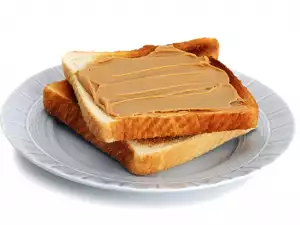
- Coarsely ground peanut butter - its very name implies its consistency - it is a coarse meal and you can feel the coarse particles crushed peanuts to nibble your mouth;
- Finely ground peanut butter - its production technology is such that it yields a smooth paste consistency.
Composition of peanut buter
Peanut butter can be a source of many nutrients. Moreover, the smooth texture makes it a suitable food for people who, for one reason or another, can not take solid food, which requires prolonged chewing. As a source of many proteins, it can partially replace meat.
Perhaps the most valuable ingredient in it is the substance resveratrol, which is a natural herbal antibiotic. Some plants produce it in order to protect themselves from harmful fungi and bacteria.
Good quality fats in peanut butter are essential to the human body. Usually the fat content of the product in a jar reaches 30-50%, 30% protein and less than 20% carbohydrates. Overall, peanuts are rich in vitamins like A, D and E, which are important for metabolism, heart, skin, bones, etc. Because of the rich content of niacin (vitamin B3) in raw peanuts, peanut butter is very important if we want to have beautiful and healthy skin.
Although a significant source of calories, peanut butter can offer large amounts of plant proteins that are particularly important for children, vegetarians and people who do not eat meat often. 1 tablespoon peanuts or peanut butter contains 25% of the daily requirement of Vitamin E, a potent antioxidant. Peanut butter also contains many essential minerals such as magnesium, copper, phosphorus, calcium and zinc.
In 100 grams of peanut butter contains:
626 kcal
'30 Protein
9.4 g Carbohydrates
Fats '49
Iron 2.3 mg
Magnesium 182 mg
08.08 mg Vitamin E
0.3 mg Vitamin B1
0.4 mg Vitamin B6
Peanut Butter Storage and Selection
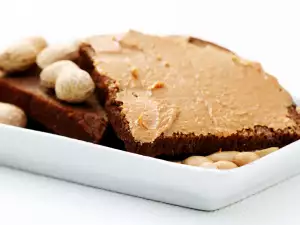
For quite some time now peanut butter in different stages and brands can be found on the stands of local shops. Usually it comes in glass and plastic jars, which is not the best solution for storage.
When choosing peanut butter, read its contents and note whether it is produced by the method of hydrogenation. If so, it is advisable to purchase. Store peanut butter, natural peanut oil and refined peanut oil in a refrigerator. Observe the expiry date stated on the package.
Culinary uses of peanut butter
Peanut butter is a product that is made for direct consumption. Therefore, the greatest benefit one can extract is if you eat it straight from the jar or spread it on a slice of bread.
Advanced culinary minds, however, look at more and more new fields to conquer and have decided that you can put peanut butter with other cooking products. It is great for the preparation of sweets and biscuits, different creams and sauces, and is often added in mashed potatoes or pumpkin.
Some people like to add peanut butter to a breakfast of oatmeal or granola. As for the peanut oil, it can be used to flavor salads, if virgin or cooking in a variety of forms, if refined.
The biggest favorite is peanut butter sandwiches and coincidentally we see them quite often in combination. In the U.S. on toast with peanut butter smeared like layer and jam. Shea butter from peanuts is widely used in the food industry for the production of different crackers, cookies and other products flavored peanuts.
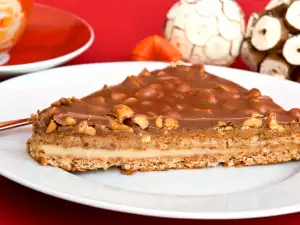
Benefits of peanut butter
Quality peanut butter can bring many benefits to our body. Because of the protein content, peanut butter is a good alternative for people who do not take animal products. Niacin contained in peanuts plays a very important role in the good structure of the skin, hair and nails.
It helps the normal functioning of the digestive system, relieves gastrointestinal disorders and bad breath as a result of them. Extra Vitamin B3 helps the absorption of energy from the food we eat, and there is evidence that can overcome alcohol addiction.
Peanut butter contains mostly unsaturated fats, which are essential and important for the normal functioning of the body. They help maintain low cholesterol levels, which reduces the risk of diseases of the cardiovascular system.
Peanut butter and has an antimicrobial effect due to resveratrol, which improves the immune system. Additionally, there are reports that resveratrol molecule and its important fight serious diseases in a row. This natural antibiotic may help against cancer, aging, and various viral infections. It helps the nervous system, and slows aging, etc.
It is said that breakfast with peanuts or peanut butter several times a week can reduce the risk of heart attack by nearly half as it strengthens blood vessels around the heart.
Dangers of peanut butter
There are some health risks from the consumption of peanut butter. First, it is inappropriate for people with food allergies to peanuts and beans. Some oils can get rancid or mold, resulting in peanut butter forming a toxic compound. Therefore, product storage is essential.
You should not overdo the peanut butter because it is still oil and as such is a source of significant amount of fat and calories. Moreover the production processes which use the process of hydrogenation brings artificial trans fats that are undesirable for admission to children and adults.
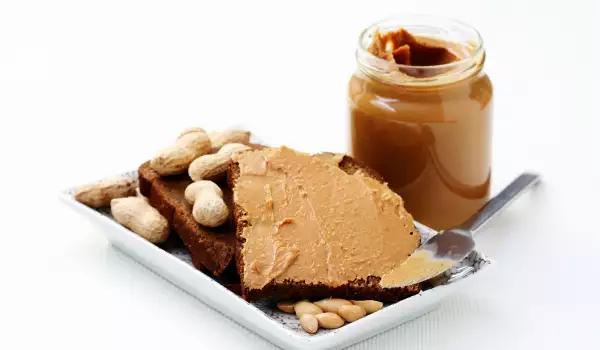
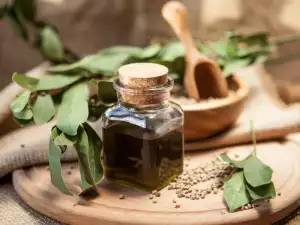
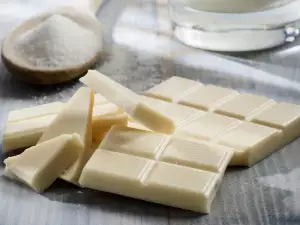

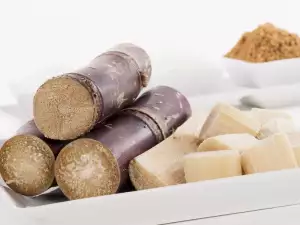

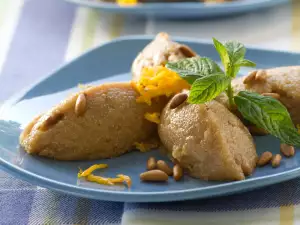
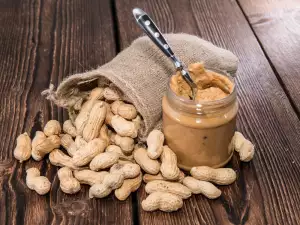
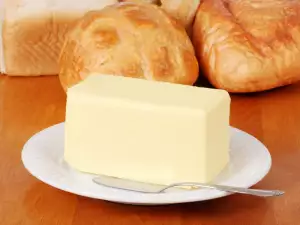
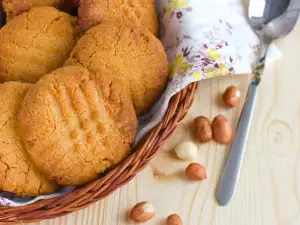
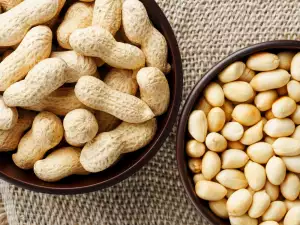
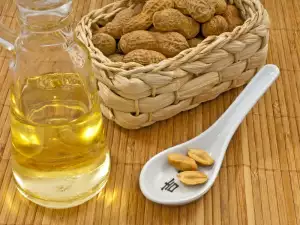
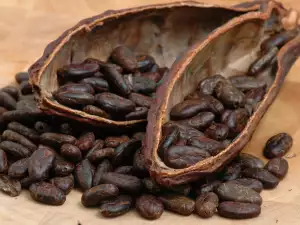
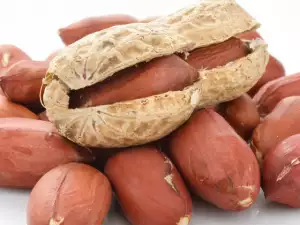
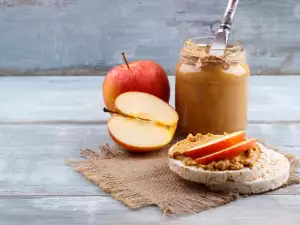




Comments
can I get some brand names or leads on where to buy this? I've looked all over the internet and can't find anything... this blog is honestly the only thing that makes me think it still exists